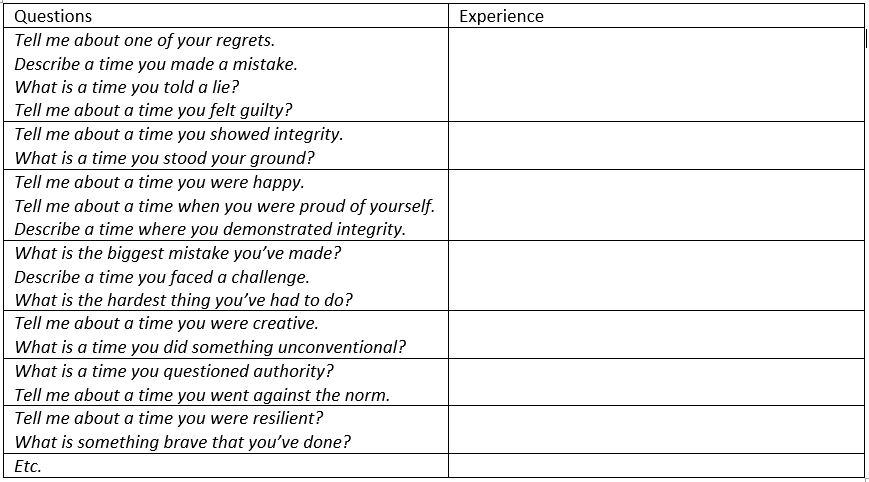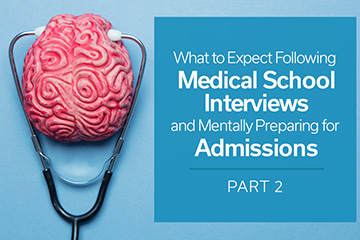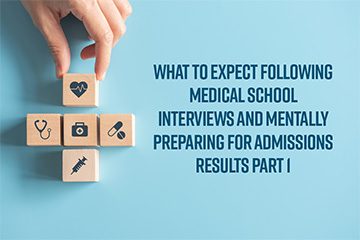
Canadian Medical School Interviews: Let’s Get Personal
When I was preparing for my medical school interviews, the questions that I struggled with most were the personal questions. I felt like there was an endless repertoire of things I could be asked. Tell me about your biggest regret. Tell me about a time where you showed empathy to someone in your life. What was a time where you acted unprofessionally? I felt extremely overwhelmed at the prospect of preparing for these countless questions and didn’t know how I could properly prepare for my interviews. I think the reason I struggled so much with personal questions was because I wanted to present the best version of myself to my interviewers, but at the same time I wanted to be honest and genuine. Having completed the interview process and my first two years of medical school, here are my top 3 tips for pre-meds feeling the same way I did:
1. Preparation is key
How can you systematically prepare for personal questions when there are so many things you could be asked? The more interview practise I did, the more evident it became to me that I could use the same personal scenario to answer multiple questions. For example, consider the following questions:
“Tell me about a conflict you resolved.”
“Describe a time where a person changed your mind.”
“Describe a time where you compromised.”
These questions all seem fairly different, but if you think about it, they all describe similar scenarios. Most of us have certainly had a conflict that ended in compromise, and this situation can be used to answer all three of the above questions. What I ended up doing (which I found to be very effective) was to group together different questions that could be answered using the same scenario. After grouping questions together, I created a chart (see below) and started to fill in what experiences could be used for each cluster of questions. I spent some time reflecting and filled out my chart with some of my most profound and meaningful personal experiences.

I liked this method for three main reasons.
Firstly, it alleviated the scramble that happened in my mind when I was trying to decide what experience I wanted to talk about to answer a question. By using this method, I already had a core group of experiences and reflections that I could use to answer majority of personal questions.
Secondly, as I continued practising personal questions after I created this chart, I became more and more familiar with the stories I was sharing. As a result, my answers became more organized and eloquent over time.
Thirdly, although I became more organized in delivering my answers through this method, I didn’t sound rehearsed! Although some people may feel better writing out scripts for their answers, be careful of sounding scripted during your interview. This can make your answer seem memorized and consequently, less genuine. I liked this method of preparation because I knew what my major points would be but I was able to put them together organically
2. Use a consistent format
When approaching ethical questions, many people develop a structure or strategy that they use to approach questions. So why not do the same for your personal questions? A format that I really liked was the STAR format (Situation, Task, Action, Result and Reflection):
Situation: When you answer a question it is easy for forget that the interviewer has absolutely no context on what you’re talking about. Take some time to describe all the necessary background information that they will need to follow along with your answer.
Task: What were you trying to do or accomplish?
Action: What did you do? How did this go?
Result & Reflection: This is perhaps the most important part of this framework. This is not only where you describe the outcome, but what you learned from it. Medical school interviewers want to see that you learn from your experiences, so this is your chance to drive that point home.
3. Mistakes are your friends
Although you want to portray the best version of yourself to your interviewers, don’t hesitate to talk about failures that you’ve had or mistakes that you’ve made. When asked “what is the biggest mistake you’ve made?” interviewers don’t want to hear about a time where you didn’t spend enough time studying for an exam and really regretted it after your marks came back. Don’t be afraid to talk about more personal situations that you’ve struggled with. I was afraid to do this at the start because I didn’t want to portray myself in a negative light but it’s more than okay to share these scenarios as long as you talk about what you learned from them. Interviewers don’t expect you to be a perfect human being, they expect that you’ve made mistakes before. Discussing superficial mistakes or blunders when the question is specifically asking for a more personal scenario may be more of a red flag than a green light so don’t be afraid to show some emotion!






